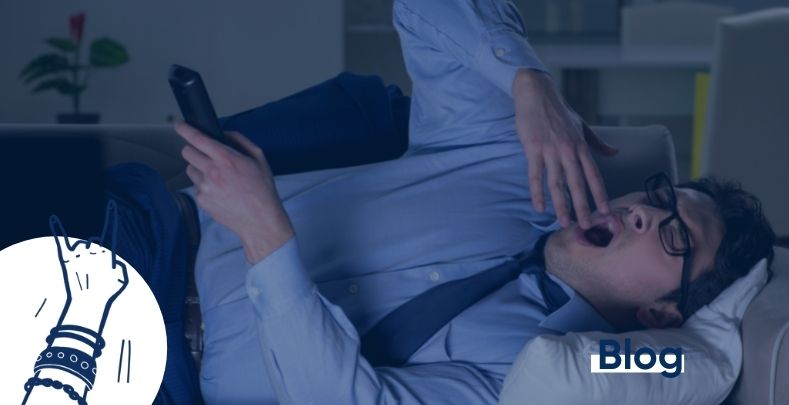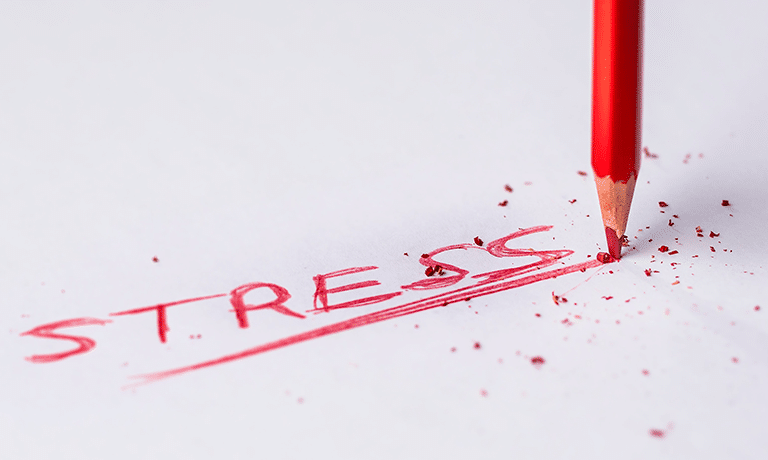

What Causes Absenteeism in the Workplace and What are the Consequences?
Monday morning, 7 am. The alarm goes off. For a few minutes, you just lie there and silently weigh up the pros and cons of even having a job in the first place & you don't need money, you could live off the land and fill your days writing poetry and songs, right?. Then you sit up, yawn, and reluctantly throw off the duvet. You shuffle, zombie-like, into the shower to be woken up the rest of the way by the horribly unpredictable water temperature. It's a tale as old as the five-day work week and we all have a morning like it every now and then.
The first Monday of February (as in the Monday just gone!) or "œNational Sickie Day," is the epitome of this internal conflict. According to some surveys, this is the day with the largest number of workplace absences in the year. Last year on the 4th of February, there were more than 350,000 absences from work. However, this finding has been disputed by the ELAS Group, who claimed that while the top ten days for rate of absence did all fall on Mondays, it was in fact the 16th of September that had the largest number of absences.
Why this particular Monday, you ask? Well...
- American football has continued to grow in popularity in the UK, so it's probably a fair assumption that 2020's National Sickie Day has been exacerbated by this year's Sunday night Super Bowl.
- Plenty of people will have finished their "œDry January" pledges, rewarding their month of self-enforced sobriety by going out and getting well and truly obliterated. Whether you count hangovers as a valid form of illness or not, quite a few people probably chose to stay under their sheets on Monday morning with a plate of greasy food and some hair of the dog.
- After the exercise in madcap money-burning that is Christmas, followed by a cold, frugal January, it's to be expected that upon receiving their first paycheque of 2020, some people go a bit nuts with it.
- Dry January isn't the only health trend affiliated with the New Year. Between Veganuary, the impulsively purchased gym memberships and New Year's resolutions in general, some people might call in sick due to stomach issues or muscle fatigue. Or maybe they've just decided to forget all that healthy living nonsense, and instead sit at home binge-watching Netflix with a bucket of KFC and some beer.
To name a few reasons at least. But although we now have an unofficial day for it, the fact is that unscheduled workplace absences are a year-round problem that negatively affects not only businesses but their employees and customers as well.
What causes absenteeism in the workplace?


There are about as many reasons for employee absence and general loss of productivity as there are for cars breaking down. As a result, it's important to be tuned into the goings-on around your office so you can understand the factors affecting your staff. If you isolate yourself from the people who work for you, then you won't be in an effective position to determine the cause of any unscheduled absences.
Research by the IT solutions company Insight found that in 2019, an estimated 8.6 million people in the UK took sick days due to reasons such as feeling overworked, being hampered by inefficient processes or technology, or due to disliking their co-workers. A quarter of respondents admitted to taking a day off in the last year due to job dissatisfaction.
Savoy Stewart, a London-based property agent, found that the top reasons people lied in order to take a sick day were poor mental health, hangovers, lack of motivation, and being too tired. Meanwhile, the most popular lies told for these sick days were food poisoning, vomiting, flu, migraines and diarrhea.
What is the impact of absenteeism in the workplace?
Well the short answer is "œquite a lot." The Gallup-Sharecare Well-Being Index surveyed over 90,000 adults in the USA. They calculated the value of the productivity lost annually to absenteeism for each industry, with working professionals (excluding teachers, physicians and nurses) costing an annual figure of $24.2 billion.
Then there are the knock-on effects of absenteeism, which are much harder to calculate. More workplace productivity is lost when you consider that an absent professional's colleagues likely have to pick up their slack, for example. In some cases, employers even have to take on temporary contract workers to compensate for absent staff in order to meet business targets.


It is important to note that rates of absence have fallen in recent years. In 2019, the Office for National Statistics reported that workplace absences have halved in the past two decades. However, it's equally important to realise that this might not be the good thing that it appears to be on the surface. The study from Insight that we mentioned above also found that 37% of respondents had come into work while feeling sick. Many of those participants stated this was due to being unable to afford an unpaid sick day. Others did so out of fear of judgement from their employer or co-workers. Insight's findings placed the blame squarely on issues within the work culture of organisations, while they endorsed flexible working arrangements as a solution.
There seem to be rising levels of presenteeism in the workplaces, especially among millennial and Gen Z-aged workers. A survey by Milkround found that 75% of Gen Z workers worry about being called a "œsnowflake" by their co-workers, with 43% saying they would not take a day off for fear of this perception.
Another study found that 88% of millennials and Gen Z feel under pressure to avoid taking sick days. Half would come into work after having a medical appointment. Meanwhile, 61% do not believe having a fever constitutes justification to take a sick day, rising to 71% not believing that mental health issues are a good enough reasons.
Presenteeism is a major issue deeply intertwined with the discussion around absenteeism, with both having the potential to devastate workplace productivity. Workers turning up while ill often pass contagions onto their co-workers, who are then more likely to require sick leave themselves. On top of that, presenteeism is often tied to overworking, which research by Canada Life Group Insurance has found to be a major cause of workplace absence. The CIPD has found that presenteeism actually costs businesses twice as much as sickness-related absences.
Steps to reduce absenteeism
Taking steps to reduce absenteeism is vital for bolstering workplace productivity. But it is important to do so without pushing employees over the line and into outright presenteeism. With that in mind, here are a couple of tips to make sure your staff members are in the best position to meet their attendance requirements.
Flexible and remote working arrangements are a godsend to people worried about having to take time off, such as employees with illnesses. Giving people the option to work from home ensures that you don't lose all of their productivity at once, while keeping them and their germs safely away from everything else.
Establishing a good mental health support network can also play a major role in curbing absenteeism. In the sections above, we've talked about why people struggle to be upfront about needing time to deal with their mental health and the excuses they use as a result. Keeping an eye on the wellbeing of your employees, and giving them access to the help they need is absolutely vital for their long-term health as well as their productivity.
Finally, as contrary, as it sounds, one of the best ways to deal with absenteeism might actually be to tackle the stigma around workplace absence. Groups such as Insight have highlighted issues in workplace culture across the UK, and dealing with this "œwork through the pain" attitude could be the final push to get workers to be more upfront and honest about their needs, and actually reduce absences overall. For example, according to Milkround, a school in Taiwan instituted a ban on paper face masks (reasoning that if you're sick enough to wear a mask, you're sick enough to take a day off). The result was that overall sick days taken by pupils fell by a third.




